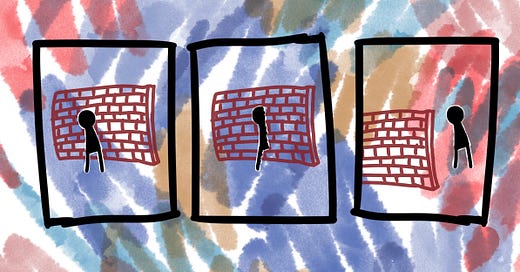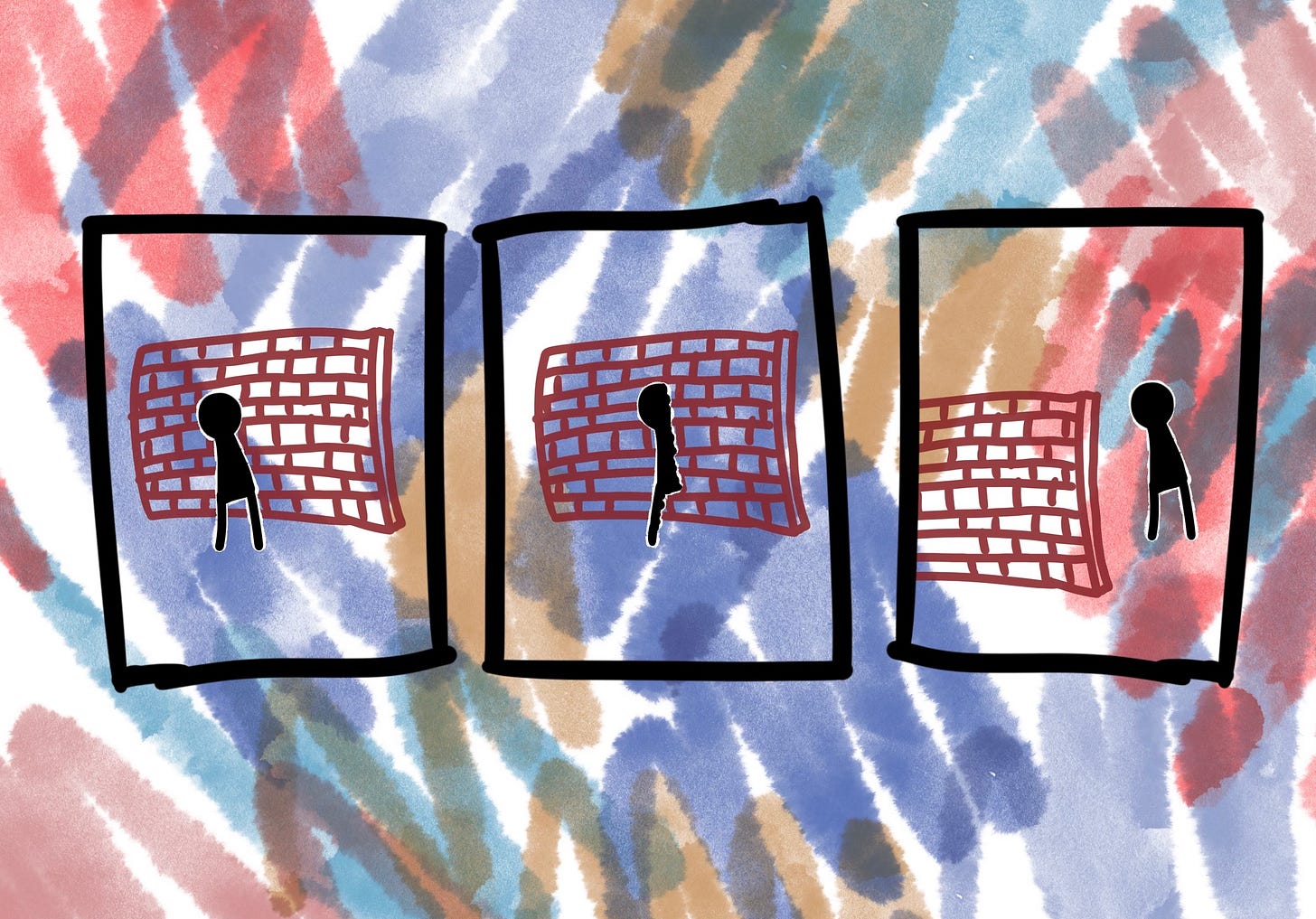Lyn Cassady was a sergeant in the Special Forces who used his paranormal abilities to further American military interests abroad. Those abilities included phasing—passing through solid objects, like brick walls—and remote viewing, the “seeing” of distant events as if one were a close witness.
Of course none of this is real (allegedly), but instead part of the plot of The Men Who Stare at Goats, a 2009 film with an all-star cast.1 Remote viewing is not a power that anyone actually possesses. You might close your eyes in a fantasy and imagine you have that power; you might dwell on the delight or horror of what you might use it to discover, or the wonder and fear that would greet the revelation of that ability to the world. But if you were to imagine you were capable of remote viewing, you would know that’s what you were doing.
It is shocking, therefore, to see it proposed that the ordinary process of imaginative engagement with an ordinary film includes imagined remote viewing. This outrageous hypothesis was floated by Jerrold Levinson in a 1993 paper (“Seeing, Imaginarily, at the Movies”): when watching a film
we ... imagine that something or other—some mechanism, perhaps, or some marvelous power—is facilitating our seeing [the characters and events in the film] as if from a given point without our actually being at that point.
That “marvelous power”—that’s remote viewing. What temptation drove Levinson to think that watching, say, Citizen Kane, or La La Land, involves imagining that one has been endowed with, and is exercising, this awesome power?
Keep reading with a 7-day free trial
Subscribe to Mostly Aesthetics to keep reading this post and get 7 days of free access to the full post archives.




